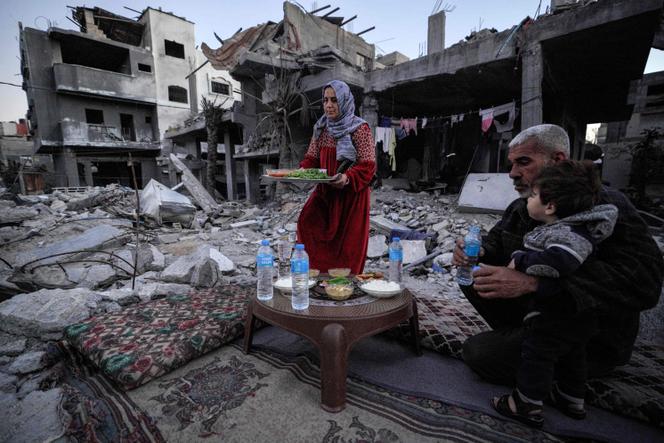


Mohammed Alshaqra won't be taking a walk by the sea before iftar, the breaking of the Ramadan fast. He had gotten into this habit in previous years, of doing so every day of the holy month. "I have wonderful memories of years gone by, the gatherings with family, friends, colleagues, and outings to the beach, the restaurant..." remembered the young man in his 30s, an employee of the municipality of Gaza.
Then October 7, 2023 arrived. The 1,200 Israeli deaths, the sacking of the kibbutzes and the acts of torture were met by Israeli air strikes, resulting in the deaths of 31,500 Palestinians, predominantly civilians, according to the local Hamas-controlled Health Ministry. The death toll has been accompanied by the methodical destruction of the enclave and a relentless siege, which has condemned the population to malnutrition and even starvation. Aid, controlled by the Israeli authorities, is still arriving only in dribs and drabs.
"We don't even have the basic ingredients for iftar. I went to the market on the first day, but I couldn't find anything. Going to mosque is out of the question. They're either closed or destroyed. And there's no possibility of gathering outside, for fear of being bombed. And if we leave the house to go somewhere else, it would be too dangerous to return after sunset," added Mohammed Alshaqra, who was contacted like all the other interviewees by telephone and e-mail because access to the Gaza Strip is still forbidden to the press by the Israeli authorities.
Wherever Ramadan is celebrated, the nights are even livelier than the days, but those in Gaza are plunged into darkness. Silence reigns, broken only by the haunting hum of drones. Electricity is almost non-existent in the enclave. Israel has cut off most of the enclave's energy production sources. The main power station has been at a standstill since October 11, 2023. As for the countless private generators, they have either been destroyed or are out of fuel. Many solar panels have been demolished along with the buildings supporting them. Insecurity is gradually taking its toll on the enclave, where organized gangs are taking advantage of the power vacuum, as are simple inhabitants who are occasionally driven to extremes by hunger.
"The advantage is, that having got into the habit of eating only once a day, you don't even feel the Ramadan fast!" 60-year-old Kayed Hamad said ironically. He was born and raised in the Jabaliya refugee camp, Gaza's largest, in the north of the enclave, a city within the city with its 100,000 inhabitants. This successful entrepreneur escaped the suffocating conditions of the camp in 2009, thanks to the purchase of an apartment in a gigantic complex of eleven 12-storey buildings, the Al-Maqusi Towers. In October 2023, he fled the arrival of the army. When the fighting calmed down a little, Kayed Hamad returned to see his home, 122 days after October 7. "Everything had been crushed. My old neighborhood had become so unrecognizable that I got lost in it," he said.
You have 53.2% of this article left to read. The rest is for subscribers only.
